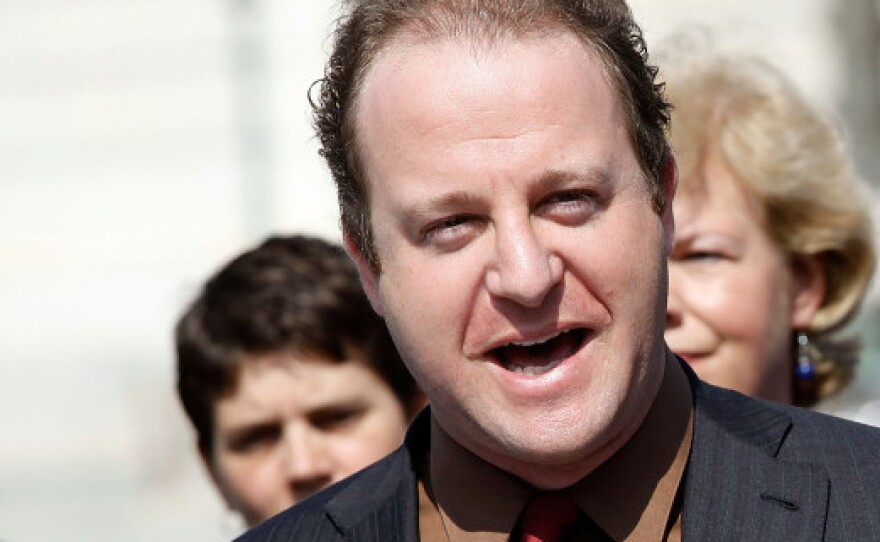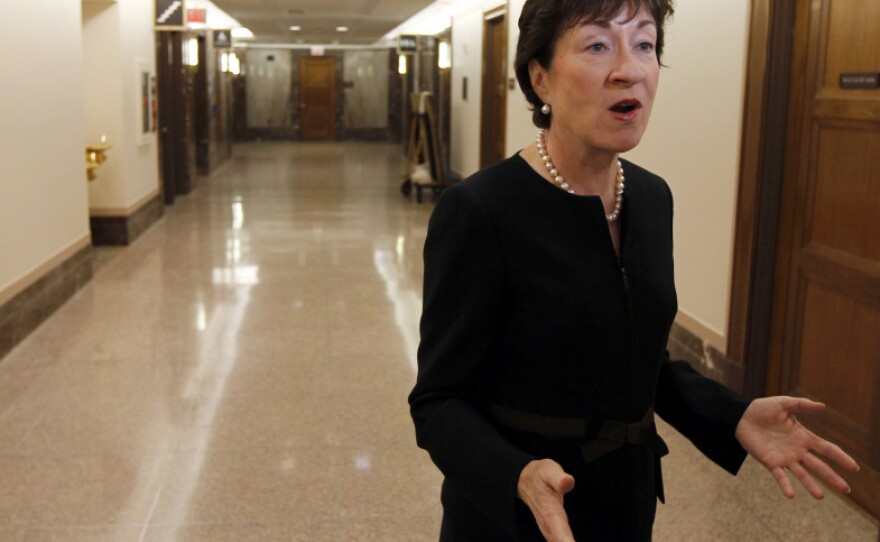Is "don't ask, don't tell" doomed? Not today -- and maybe not anytime soon either.
The Senate voted Tuesday afternoon on a procedural motion that would have led to repeal of the 1993 law that prevents openly gay men and women from serving in the military. But repeal supporters failed to get the 60 votes necessary to move the measure along. The party-line tally: 56 in favor; 43 opposed. Democrats favor repeal. There are 59 senators in the Democratic caucus.
Supporters are confident that anti-gay military policies are destined to be overturned, in time. "A policy that is opposed by the overwhelming majority of the American public is something that ultimately is going to be repealed," says David Stacy, deputy legislative director for Human Rights Campaign, a gay-rights organization.
Senate Majority Leader Harry Reid (D-NV) has said that if the defense bill that the don't ask, don't tell repeal was attached to didn't move ahead today, he will bring it up in a lame duck session, following the November elections.
"It's a matter of timing," says Rep. Jared Polis (D-CO), who is openly gay. "This policy should have ended years ago."

More Hurdles To Come
But many repeal supporters are nervous that further delay could weaken their chances. If legislation doesn't move through the Senate this week, success will be difficult for them to achieve in a post-election lame duck session.
"Anyone who tries to predict what will happen in [a] lame duck [session] has got a lot more courage than I do," Carl Levin (D-MI), who chairs the Senate Armed Services Committee, said Monday.
Critics of the law face even greater hurdles next year if, as is now widely expected, Republicans take control of the House.
The House voted to repeal don't ask, don't tell in May, but only five Republicans voted in support. The chances of the House voting for repeal if Republicans take control following November's midterm elections are slim. "Speaker Boehner would not allow us to move this," says Trevor Thomas, spokesman for the Servicemembers Legal Defense Network, which represents soldiers and sailors affected by the law and favors its repeal. House Minority Leader John Boehner of Ohio could be the next speaker in a GOP-led House.
Lining Up Support
The Pentagon will issue a study in December that is expected to argue that allowing gays to serve openly would not harm the military.
President Obama, Defense Secretary Robert Gates and Adm. Mike Mullen, chairman of the Joint Chiefs of Staff, all favor repealing don't ask, don't tell, or DADT.
"The don't ask, don't tell policy is on the way out," says Polis. "It continues to weaken our military every day. We can't afford at a time of two wars to lose qualified people."
But not all the top military brass favor changing the law. Gen. James Amos, Obama's nominee to lead the Marine Corps, testified before the Senate Armed Services Committee Tuesday that lifting the ban on gay service members would weaken morale.
Because DADT is enshrined in law, the Defense Department would not be likely to craft policies to circumvent it, regardless of its own study's findings.
From the point of view of DADT opponents, that means a study calling for repeal could backfire. Word of the review's findings could prompt gay individuals serving in the military to announce their orientation, but they would remain at risk of expulsion.
That's why the Senate vote is considered crucial.
Changing Opinions
It's clear that public opinion has shifted dramatically since 1993, when President Bill Clinton's support for allowing gays to serve in the military caused considerable political blowback, including the passage of the don't ask, don't tell law.
Polls conducted over the past couple of years have indicated that nearly 60 percent of Americans favor the law's repeal.
On Sept. 9, federal Judge Virginia A. Phillips ruled that DADT is unconstitutional. The Obama administration is expected to appeal. Though the president wants to get rid of DADT, the Justice Department position is that the issue should be decided by Congress rather than in a court because it is a political matter.
But many Republicans and social conservatives say that repealing DADT would harm the military by undermining unit cohesion. Changing the policy would prove an unneeded distraction at a time of war, they argue.
Wanting More Thorough Review
The Senate Republicans whose votes remained in doubt leading up to the vote expressed concern not so much about the policy, but the process. Susan Collins, a Maine Republican who was one of the targets of a Portland rally on Monday featuring pop star Lady Gaga, supported repeal of DADT in the Armed Services Committee.

Collins said, however, she could not support the procedural motion to bring the bill to the floor because of her dismay that Reid would not allow consideration of Republican amendments to the $726 billion defense measure.
"The majority leader is setting himself up to simply say 'I tried' when Republicans vote against cloture on the defense bill today," says R. Clarke Cooper, executive director of the Log Cabin Republicans, a gay GOP group. "If the [defense bill] fails to proceed this week because of cheap political stunts, it is the Senate majority leadership that should be held accountable, not the unreasonably slighted minority."
Sen. John McCain of Arizona, the top Republican on the Armed Services Committee, complained on the Senate floor Monday that no vote on DADT should be held prior to the Pentagon's review. Democrats, he said, were rushing matters to their favored conclusion.
"The fix is in," he said.
Apparently not.
Copyright 2022 NPR. To see more, visit https://www.npr.org. 9(MDAzMjM2NDYzMDEyMzc1Njk5NjAxNzY3OQ001))






